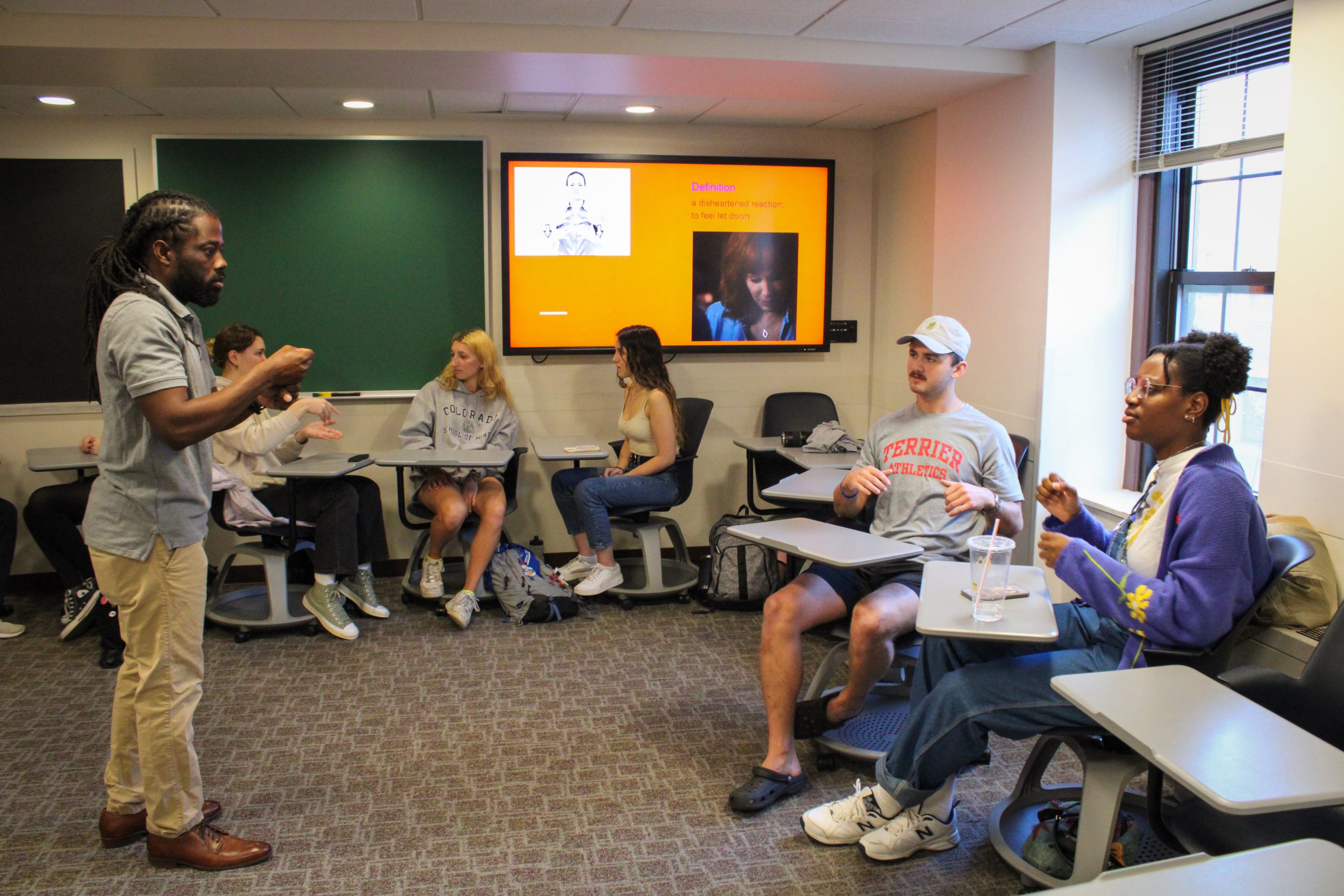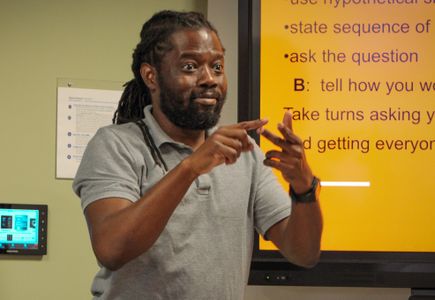In Pursuit of “A Better Education” for Black Deaf Students

Photography by Christina McDonnell
In Pursuit of “A Better Education” for Black Deaf Students

Living as a Black person amid systemic racism, marginalization, and prejudice is difficult enough. And when you’re Black and Deaf, the struggle intensifies: Deaf Black people face exclusion, marginalization, and discrimination at multiple fronts. But Deaf Blackness cannot be reduced to adversity, suffering, and pain. Deaf Black people also have a rich culture to celebrate, including Black American Sign Language (BASL).
Franklin Jones, Jr., knows this story intimately. A Deaf studies lecturer at BU Wheelock, Jones is a Deaf Black scholar who teaches American Sign Language (ASL). In his work, Jones uses his experiences as a springboard for his research on educational outcomes among Deaf Black men in higher education. And that’s not all: alongside his work as a lecturer and researcher, Jones is a noted speaker on Black Deaf culture, linguistics, and pedagogy.
We spoke to Jones about his life and work, including his work on educational attainment among Deaf Black men, the differences between BASL and ASL, and more.
Q&A
Question: How does being a Black, Deaf scholar influence your work? What insights do you think your experience has given you in your research and teaching?
乔
Question: What are some of the notable differences between American Sign Language (ASL) and Black American Sign Language (BASL)? Are they analogous to the differences between spoken and written Standard American English and African American Vernacular English (AAVE)?
乔
Question: What excites you about working in BU Wheelock’s Deaf Studies program?
Jones: I am excited to work in BU Wheelock’s Deaf Studies program. It will allow me to grow, thanks to the extensive opportunities provided by BU in expanding my network. I aim to develop a new course focused on Black Deaf culture within the Deaf studies sphere. I look forward to reviewing the curriculum with the BU Wheelock’s Deaf studies program team to ensure diverse perspectives, stories, and experiences are integrated in the curriculum.
I work with a fabulous team in Deaf studies who recognize gaps in the curriculum and are ready to work together to further transform the curriculum. I’m looking forward to continuing my professional and personal growth at BU.
Question: According to your bio, you’re working on a dissertation about educational attainment among Black Deaf students. Can you tell us a little more about that dissertation?
Jones: Only 10.8% of Deaf Black male students today are graduating with degrees from higher education. I want to explore and understand the strategies of those Deaf Black males who are resilient and overcome barriers to education so they can graduate with a bachelor’s degree like I did. I hope my dissertation will help increase understanding that the education system still needs to improve. My findings will show schools how to better support Black Deaf men in higher education to ensure they graduate. Also, I hope my dissertation will inspire other people of color who have similar experiences to apply these research methods to their people and culture. Black Deaf men deserve equitable access and should be able to obtain an excellent education just like anyone else.